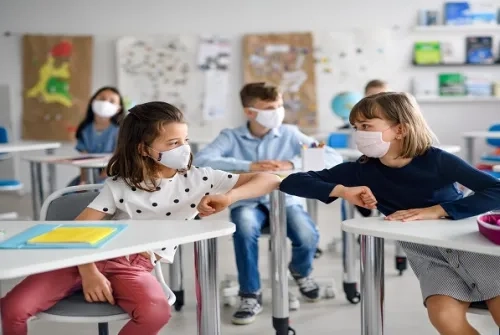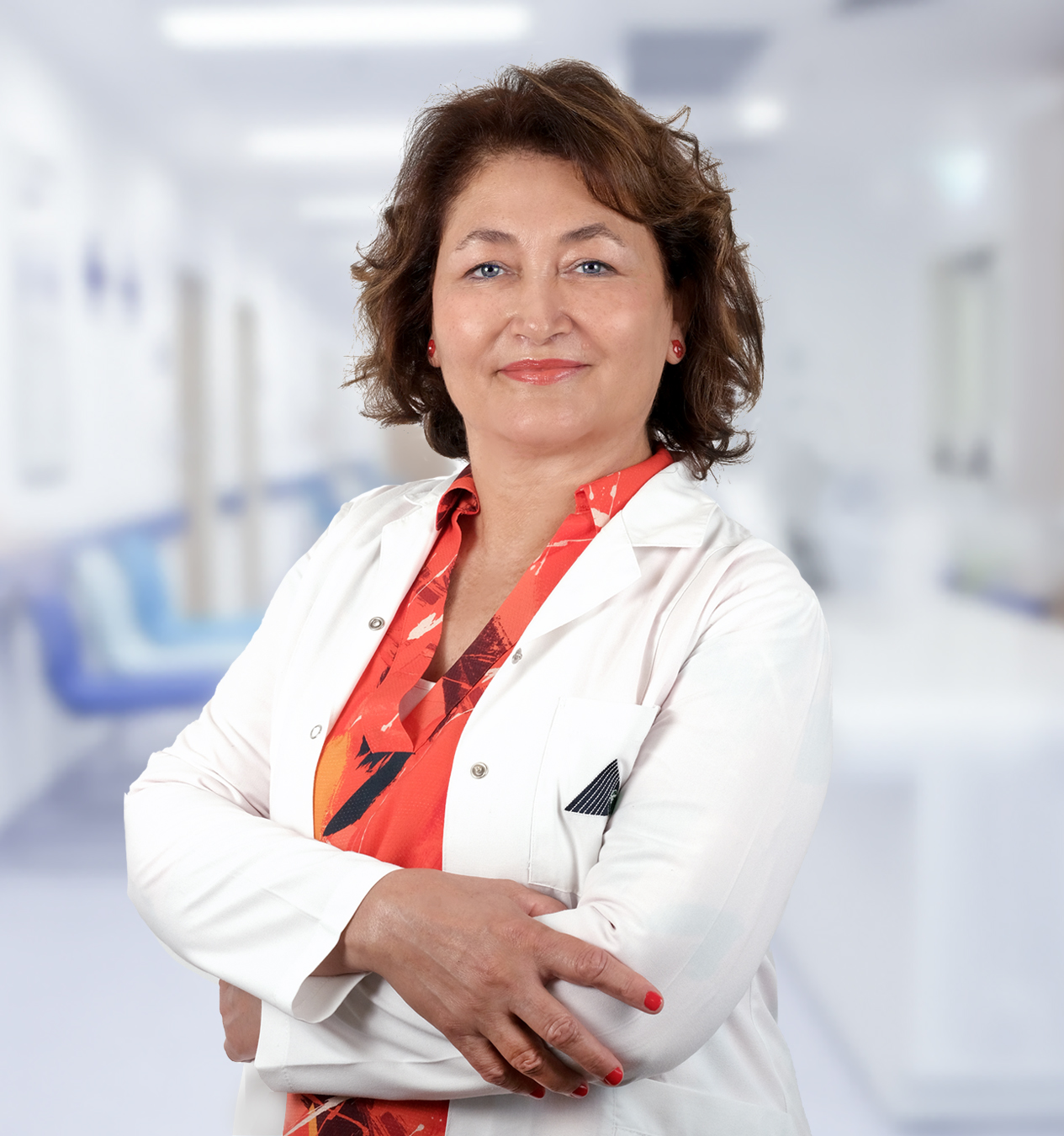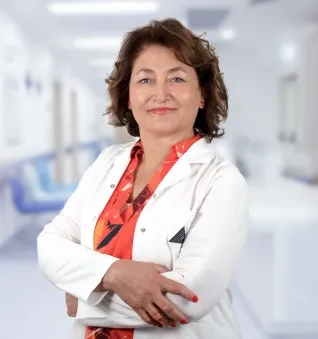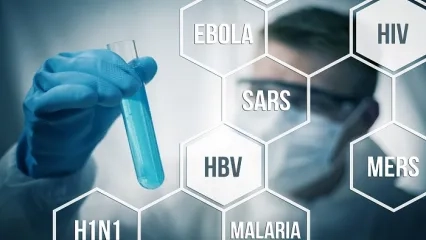Alo Yeditepe
Alo Yeditepe
How to Prevent COVID-19 in School-Going Children
Stating that the most effective way to protect children from Covid-19 nowadays when schools open is to raise their awareness, Prof. Dr. Meral Sönmezoğlu pointed out that some measures must be continued...
Nowadays, when mask distance and hygiene measures are almost forgotten, children have started to spend more time in crowded and closed environments with the opening of schools. Stating that this may increase the risk of transmission of Covid-19 in the coming days, Prof. Dr. Meral Sönmezoğlu, Head of the Department of Infectious Diseases and Clinical Microbiology at Yeditepe University Hospitals, emphasized the importance of personal precautions and gave the following advice to parents...
The Pandemic Continues!
Even though summer is currently underway in the northern hemisphere, cases are spreading quickly worldwide. While there were close to 17 million cases in our nation, there were also more than 100,000 deaths. Over 46,000 cases per week and 6,000 cases per day are reported. This indicates that neither our nation nor the rest of the world has fully recovered from the pandemic period.
It Mainly Affects Children and The Elderly
In our nation, as in other nations, the pandemic primarily affects people over the age of 65. Children are among the most impacted groups, obviously, along with the elderly. It might also be referred to as the second group. Currently, families are worried as the schools open: "What will happen if cases increase? How can we protect our children? '' Absolutely, despite not being the sickest and most severely afflicted group, children are still a risk for the spread of the disease since they are the ones that infect their families when they are ill. We have noticed that parents are being sick with their children in recent months, particularly during the summer.
What to Consider During a Pandemic
Illustrate why distance is more essential than masks
The mask is one of the most frequent inquiries made by parents during this time. For youngsters during this time, wearing a mask is not advised. Children should be careful not to hug and kiss each other until the pandemic is stopped, whoever that may be.
Establish a hand-washing routine
Reminding children to wash their hands regularly and reinforcing this instruction are two steps that should be taken. It is crucial to wash your hands with soap and water for 20 seconds before and after using the restroom and before eating at school since there are much too many surfaces that are touched. When water and soap are not accessible, disinfectants should be used to clean hands.
Complete missing vaccines
Measles, rubella, and tetanus vaccines were not administered to children aged 6-7 years old when they were scheduled to when they started school because of the pandemic. There were also delays in young children's vaccines. Families and schools are responsible for checking and completing these.
Do not send them to school if they are sick
Teachers and the school administration should tell parents that sick children should not attend school. Because children can spread the illness to their families as well as their other classmates.
Boost Their Immunity
To prevent illnesses in school, it is essential to nurture a child's immune system. The most crucial thing to do is stick to a nutritious diet. Children should be sent to school after breakfast. Children should consume enough of each food category during the day. To make sure they get the meals they skipped at home, ask them what they ate throughout the day when they get home from school.
Make sure they get enough sleep
Sleep is one of the things that keeps the immune system healthy. It is crucial to make sure children get enough, high-quality sleep. Water consumption is crucial for the immune system, along with a healthy diet and adequate sleep.
Make sure children are active outside
Being outside and exercising outside is crucial for children's health and disease prevention. Because children avoid sports at this time, we need to make sure they resume their participation.
Teach/remind them what to do when they sneeze
If a handkerchief is not available, children who regularly sneeze owing to allergy conditions or flu illnesses should be instructed or reminded to cover their mouths and noses with their elbows instead of their hands.
Press Coverage: sozcu
About
Faculty and Year of Graduation:
Medical Faculty of Ankara University, 1984
”
See Also
- What is Hepatitis B? What are its symptoms? How is it Transmitted?
- What is HMPV Virus? HMPV Symptoms and Ways of Transmission
- Why Is the Flu Lasting Longer This Year?
- What Precautions Should Be Taken Against the Cold Epidemic?
- Don't Be Late Fighting Against Diseases
- Antibiotics Kill Beneficial Bacteria, Not Viruses
- What is Hepatitis? What are the Symptoms and Treatment Methods?
- Symptoms and Treatment of Tick Bites
- Summer Infections
- Precautions Must Be Taken Against Loss of Life Due To Infection in Thalassemia
- Information on H1N1 (Swine Flu)
- Summer is Coming... Beware of food poisoning!
- Our Taboos Affect the Increase in the Number of HIV-Positive Cases in Turkey
- Strep A Symptoms and Treatment
- Do Not Put a Cigarette Butt or Pour Olive Oil or Liquid Soap on the Tick
- Reheat the Food You Cooked Only Once!
- HIV Can Be Hidden for 10 Years without Any Symptoms!
- 290 Million People Live Without Knowing They Have Hepatitis
- Things to Consider When Touching Meat at Eid
- What Is Anthrax Disease?
- The Way to Fight AIDS is to Raise Awareness First
- Still Not Too Late For Flu Vaccine
- What is Rhinovirus?
- Fighting with Thalassemia: Meral Yılmaz
- Thalassemia Spreads from the Mediterranean to the Whole of Europe with Migration!
- Early Treatment of Crimean Congo Hemorrhagic Fever is Vital
- Approximately 3 Million Patients Need Blood Transfusions Every Year in Turkey
- When to Get the Flu Vaccine
- Antibiotics Account For 14% of Prescription Costs
- West Nile Virus Replaces Malaria
- It Is Necessary to Try to Be Healthy in order to Be Protected
- A New Flu Outbreak is Expected Every 10 Years
- 63% of Vector-Borne Diseases are Caused by Lyme Disease
- Experts Warn About Flu Risk
- Mosquito Infection Risk
- Why aren’t Antibiotics Working Any More?
- The World Raises an “Alarm” on Antibiotic Resistance!
- What is COVID-19?
- The Mask Requirement was Removed and the Importance of Social Distance Increased!
- WHO (World Health Organization) Warns for Antibiotic Resistance!
- Who Is Threatened by Monkeypox?
- Ways to Prevent Coronavirus
- Swine Flu / H1N1
- Life Returns to Normal with Caution
- What is Monkeypox Virus? What Are the Symptoms of the Monkeypox Virus?
- What is Lyme Disease?
- How to Tell if You Have a Mild Coronavirus?
- Pay Attention to These Rules for COVID-19
- Hand Sanitizer Usage Guide
- The Priority Rule for the Protection from Summer Infections is Hygiene
Alo Yeditepe




